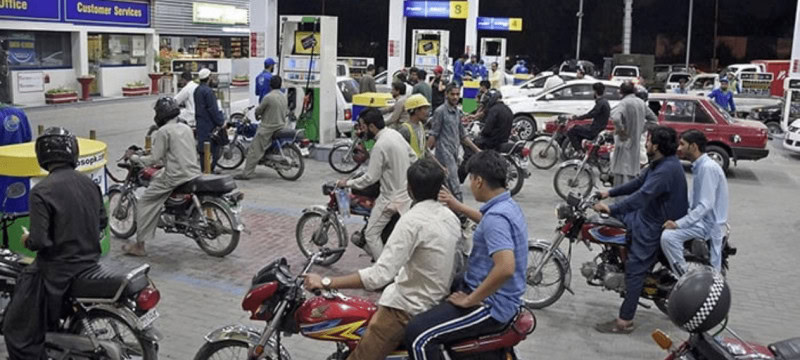The Pakistani government is exploring multiple strategies to address the escalating circular debt, including raising the petroleum levy on all petroleum oil lubricants (POLs) from the current Rs60 to Rs80 per liter.
Prior to the budget announcement, authorities are contemplating imposing an additional levy on petroleum products and increasing gas tariffs beyond the revenue requirements of gas companies.
To tackle the circular debt, which has now reached Rs2.9 trillion in the gas sector, the government plans to utilize the Gas Infrastructure Development Cess (GIDC) funds currently held by the Finance Division.
Read more: Petrol Prices In Pakistan Expected To Decrease Again On June 16
Officials are also considering options to reduce inter-corporate debt, partly in cash and partly through book entries, similar to the method used in 2013 by former finance minister Ishaq Dar to clear circular debt in the power sector.
In accordance with IMF directives, the finance ministry has decided not to allocate budgetary subsidies for the upcoming fiscal year to offset the Rs260 billion loss from the non-recovery of Re-gasified Liquefied Natural Gas (RLNG) diversions to domestic consumers, as per reports.
The Petroleum Division has been tasked with proposing practical solutions to address the circular debt issue. Officials suggest that by increasing the petroleum levy by Rs20 per liter, the additional funds could be used to reduce the circular debt in the gas sector.
To utilize the GIDC funds, currently at Rs350 billion, collected from various companies to tackle the circular debt, the government would need to amend the GIDC Act. An additional Rs400 billion in GIDC payments are yet to be recovered from the fertilizer and compressed natural gas (CNG) sectors.
Experts propose that increasing the gas tariff beyond the revenue requirements of gas companies could generate surpluses to gradually reduce the circular debt, but this would require the political will of the government. Additionally, the government is considering maintaining natural gas prices from July 2024, instead of implementing the recommended 10% reduction, to help offset the Rs1.5 trillion shortfall.









